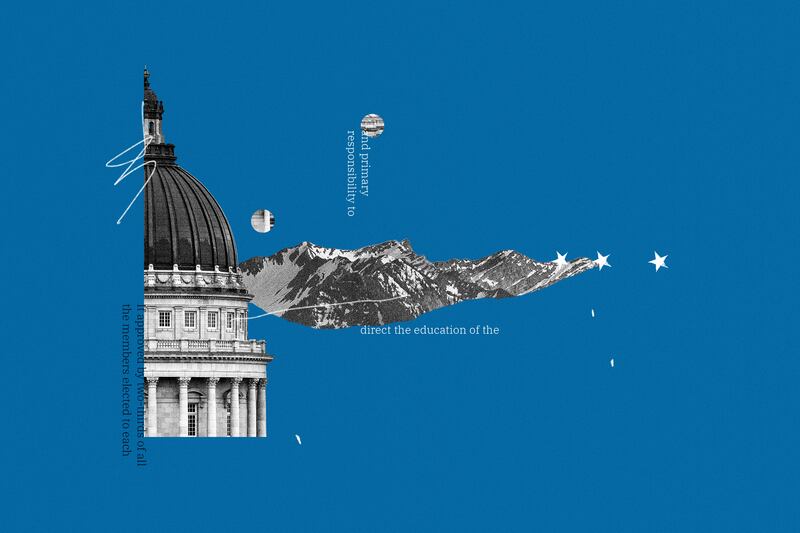The Utah Legislature has one more week to meet in this year’s legislative session, and bills are still being released. They’ve set a new record, with 1,377 bill requests and 894 bills that have been drafted. Most of the bills still being released won’t have their day on the Hill this session, but there are still hundred of bills that will be heard and voted on.
One of the bills that is moving through the Legislature is HB451, a bill that would prevent state universities from asking for statements of “diversity, equity and inclusion, anti-racism, implicit bias or critical race theory” from their professors and their students. Rep. Katy Hall, R-South Ogden, the bill’s sponsor, said that while everyone could agree that diversity, equity and inclusion were good ideas, asking for written DEI statements was discriminatory and ran counter to the idea of academic freedom. The House Government Operations passed the bill out 8-3.
When the bill was heard on the House floor on Friday morning, Rep. Sandra Hollins, D-Salt Lake City, who is Black, said “I am tired. I am tired physically, spiritually and mentally. I don’t know what the fear is.” She continued, “I don’t know what to tell my community anymore. I don’t know how to make them feel safe anymore.” For every couple of steps forward, it feels like we are going five steps backward, she said. The bill passed the House along party lines, 57-14 and now heads to the Senate.
There is also a bill, by Sen. John Johnson, R-North Ogden, which would defund all diversity, equity and inclusion efforts at the university level. Another bill by Rep. Tim Jimenez, R-North Tooele, would prohibit Utah teachers from talking about discrimination and racism in school and would prohibit subjecting or exposing “a student to an environment, displays, or instruction” that would force them to confront a “sincerely held belief, value or standard” taught in their home.
These bills seem to fly in the face of the Utah Compact on Racial Equity, Diversity and Inclusion, which affirms that “all people are created equal under God. A racially equitable state requires us to act and create a society in which race and ethnicity do not determine or limit value, opportunity and life outcomes.” When the compact was signed in December 2020, then-Gov. Gary Herbert said the hope was that the compact would serve as a model nationwide and be applied at the federal level to guide reform around systemic racism. The first of five anti-racist principles was acknowledging that racism exists.
Other bills on the Hill this week included a one-two combo of removing the sales tax on food and modifying the Utah State Constitution to allow lawmakers to access funds generated by income tax. Currently, those funds can be spent only on education and a few social service programs. As long as the proposal to amend the constitution passes by a two-thirds majority, which it is expected to do, it will then be placed on the next general election ballot in 2024 for Utah voters to approve or disapprove. If voters say no to the constitutional change, then the sales tax on food would remain.
Finally, a bill that continued a conversation but ultimately went nowhere was Sen. Luz Escamilla’s bill that would have authorized a pilot program for medical use of psilocybin (“magic mushrooms”). The bill as written would have allowed for the production and medical use under tighter parameters than currently exist for medical marijuana usage in Utah. The medical psilocybin would have been administered only to adults age 21 and older, for four specific conditions: depression, hospice care, or anxiety or PTSD, but only after at least one other treatment had been tried and proven effective.
Patients would also have received the treatment only under supervision and would not have been able to take any product home with them. Committee testimony included statements from therapists who testified in support of the bill, saying, in part, that it has been studied extensively, was safe, effective and that it was “essentially impossible” to overdose on psilocybin, unlike “caffeine and alcohol.” Dr. Reid Robison, a psychiatrist and researcher, said “I am very convinced the benefits far outweigh the risks ... this will save lives.” The committee voted to move on the next agenda item, effectively killing the bill for this year.


